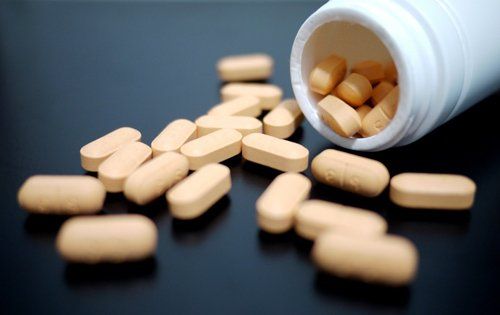Additives For Your Septic Tank | Walter's Environmental Services
When To Use Additives For Your Septic Tank
While additives are not always a required addition to your septic tank, there are many situations where you should use them or where they are at least recommended, such as the following. Keep in mind that additives are most effective when combined with other septic treatments.
Enzymatic Additives
Enzymatic additives may be able to reduce the amount of oil that is in your septic system. When oil, grease, fats, and solids accumulate in a septic system, they can cause clogs in the drain field, which can increase the risk that the drain field overflows.
Blocked drain fields are caused by a tank outlet port becoming clogged, damage being caused to the boundary line between the septic system and the leach field, or the leach field itself becoming clogged. These problems occur after years of use and may be the result of tree roots infiltrating the drain field.
Scum Layer Treatment
When your septic tank is under a bacterial die-off condition, you may use additives to reduce the amount of effluent solids. A die-off condition occurs when the bacteria in a septic tank die as a result of toxic conditions. A die-off condition can also result from anti-bacterial agents being poured down the drain. Pouring medicines down the drain can kill off bacteria.
When you add biological additives to your system, these can increase the biological activity to the point where excess solids may be carried into your soil absorption system. Anaerobic decomposition causes the formation of methane gas. Methane bubbles push the solids to the settled portion of the tank and can lead to the formation of a scum layer.
The scum layer consists of grease, fats, and floatables. You can use enzymes to break up this scum layer so that these materials can escape. You should periodically measure the septic tank scum layer to determine if the tank is being pumped often enough.
Chemical Additives
When you have a failed or clogged soil absorption system, you may need to use chemical additives to restore the functionality of this system. The type of chemicals used for this purpose include:
- Baking soda
- Hydrogen peroxide
- Sulfuric acid
- Formaldehyde
Hydrogen peroxide may not be an effective option because it can reduce the permeability of your soil. Also, be careful when handling sulfuric acid. Wear protective gear, such as rubber boots, rubber gloves, and a respirator.
Additives for Odors
Additives used to control odor in a septic system are perfectly safe when used as intended. For instance, many of these additives contain ingredients such as formaldehyde, which can kill off bacteria, thereby reducing the odor. However, if these additives are not diluted as instructed, they will not be able to kill off the bacteria.
Besides using these additives, you should investigate why your septic tank is producing unpleasant odors in the first place. For instance, find out if sewage is surfacing in the absorption field area. Find out if you have a problem with a plumbing vent or if you have a ruptured sewer line.
Biological Additives
If you take antibiotics or medications and there is a chance that these additives will be poured down the drain, you should consider using biological agents that can help undo the damage this will cause. Biological additives can restore the bacterial balance in your septic system.
The biological additives consist of bacteria mixed with surfactants and nutrient solutions. The bacteria found in human waste can be very resilient and will do its job, but depending on the condition of your septic tank, you may need to add more bacteria.
While some additives can improve your septic system, they are not enough on their own. Instead, they are best used in combination with other septic tank maintenance methods, including drain line cleaning and septic cleaning. If you are looking for these services, contact us at Walter's Environmental Services.





